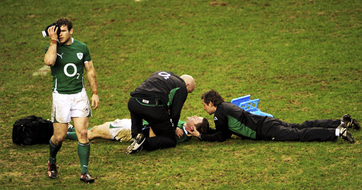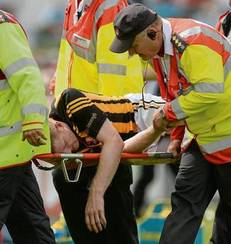These arguments for allowing athletes use performance enhancing drugs assume that they possess all of the knowledge to make an informed decision and that they possess sufficient power to resist doping where that is required by, for example a coach or the rest of their team. It is clear that sports bodies accept that regulation is necessary to protect athletes from undue pressure and/or from themselves. And yet in other situations these bodies seem very reluctant to regulate to protect players.

the advice of the World Conference on Concussion in Sport, which has unanimously recommended that there should be no return to play on the same day of a suspected concussion, should be the template on which rugby bases its approach.
The same Conference also recommends that a graded seven-day assessment should be undertaken after a concussion.
As the players, the hits and the prizes get bigger in this sport it is likely that a crisis point will come and regulation will be forced on the IRB. Of course this is not just a rugby issue but affects all athletes in contact sports. Davy Fitzgerald, the Clare hurling manager, showed how the pressure on coaches and back room staff can lead to bad and potentially dangerous decisions being made in relation to concussion when he called for an independent doctor to assess suspected concussion. The GAA recently published welcome guidelines on managing concussion. It says that a player with a suspected concussion injury should not return to current game or training. It will be interesting to see whether this will be the case and Davy Fitzgerald seems to indicate that players and managers can't be trusted to call it. This is hardly surprising in light of the recent survey by the Gaelic Players Association (GPA) that revealed that 58% of intercounty players admitted to playing on in a game while concussed.

 RSS Feed
RSS Feed